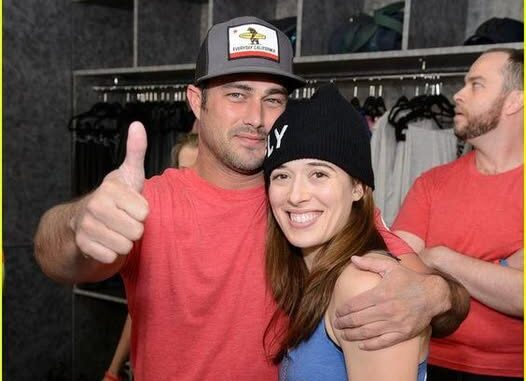
In the ever-evolving world of television, few shows manage to maintain relevance and audience loyalty over a decade after their debut. Yet, despite a wave of controversy surrounding their renewal decisions, NBC’s ‘Chicago P.D.’ and ‘Chicago Fire’ are not only surviving — they’re thriving. Recent data shows both shows have experienced massive spikes in streaming numbers, proving once again that the One Chicago franchise is a force that refuses to be ignored.
The backlash surrounding the renewals of both series — particularly centered around cast changes, storyline fatigue, and rumored budget cuts — had many questioning whether fans were ready to say goodbye. But according to viewership trends, it seems the audience isn’t just still watching — they’re binging harder than ever before.
Earlier this year, NBC announced that both Chicago P.D. and Chicago Fire would be renewed for the 2024–2025 TV season. The decision sparked immediate reactions — not all of them positive. Critics argued that both shows were beginning to show signs of creative fatigue. Some fans were vocal about key character exits (like Jesse Lee Soffer’s Jay Halstead and Kara Killmer’s Sylvie Brett), and there was buzz that the storylines had become “too safe” or “repetitive.”
Adding fuel to the fire, there were rumors that the renewals came with significant budget reductions, which might affect cast salaries, location shoots, and overall production quality. Some diehard fans feared their favorite shows would be renewed in name only, with hollowed-out teams and rushed plots.
Following the controversial renewal announcements, both Chicago P.D. and Chicago Fire saw massive surges on streaming platforms like Peacock and Hulu. Within weeks, both shows climbed into the Top 10 most-watched dramas across multiple platforms. Some analytics firms even reported double-digit increases in episode replays and full-season binges.

What caused the spike? Experts point to a few key factors:
-
Curiosity: The controversy actually drew more attention to the shows. People wanted to see what all the drama was about — especially newer fans who hadn’t yet caught up.
-
Comfort viewing: Procedural dramas like Chicago P.D. and Chicago Fire offer consistent storytelling, familiar faces, and satisfying resolutions — the perfect binge material for viewers looking for comfort and reliability.
-
Character nostalgia: As news broke about potential exits and shake-ups, many fans went back to rewatch favorite arcs and character moments, especially those involving now-departed fan favorites like Halstead, Lindsay, Brett, or Casey.
The end result? A stunning rebound in popularity — just when the shows needed it most.
Another reason for the surge is the power of interconnected storytelling. The One Chicago universe — which includes Chicago P.D., Chicago Fire, and Chicago Med — has created a loyal cross-show fanbase. Viewers who tune in for one series are often pulled into the others through crossover events, character appearances, and shared storylines. With rumors swirling about new crossovers and potentially massive story arcs planned for the upcoming seasons, fans are diving back into earlier episodes to prepare for what’s next. The shows don’t just stand on their own — they thrive together, feeding each other’s success.
NBC’s ability to create a unified fictional universe, akin to Marvel or Dick Wolf’s Law & Order franchise, gives the Chicago shows a level of sustainability most procedurals can only dream of. While initial fan reaction to cast changes was emotional and, at times, outraged, the long-term result may be helping the shows evolve. The exit of characters like Jay Halstead, Hailey Upton (soon), and Sylvie Brett opened the door for new talent — and fresh dynamics. Newer characters such as Dante Torres (Benjamin Levy Aguilar) and Violet Mikami (Hanako Greensmith) have begun to carve out fanbases of their own. And with the shows more willing to take risks, including killing off or writing out long-standing characters, viewers are now watching with more tension and anticipation.
In short, what initially felt like losses may be recharging the storytelling, keeping things unpredictable — and binge-worthy. The streaming surge also correlates with a renewed wave of social media buzz. Clips of emotional scenes, behind-the-scenes interviews, and fan edits have gone viral on platforms like TikTok and Instagram. Popular hashtags like #OneChicago, #Upstead, and #Stellaride have dominated fandom corners of Twitter and Reddit, encouraging new viewers to check out the shows.
What’s especially fascinating is how younger demographics — teens and twenty-somethings — are now discovering the series for the first time through streaming. A show once considered a staple for middle-aged viewers is now attracting a broader and more diverse audience.
The takeaway for NBC is clear: despite the criticism and creative changes, the audience is still invested. If anything, the controversy may have helped reignite interest, boosting streaming performance and securing the shows’ status as must-watch drama in the crowded TV landscape. It also sends a message to the network that fans care deeply — and expect thoughtful character development, emotional depth, and high production quality in return. With Season 13 of Chicago P.D. and Season 13 of Chicago Fire already greenlit, NBC has an opportunity to use this momentum wisely. By balancing fresh faces with legacy characters, honoring past arcs while pushing forward, and leaning into cross-show synergy, the One Chicago universe could easily keep thriving for years to come.
